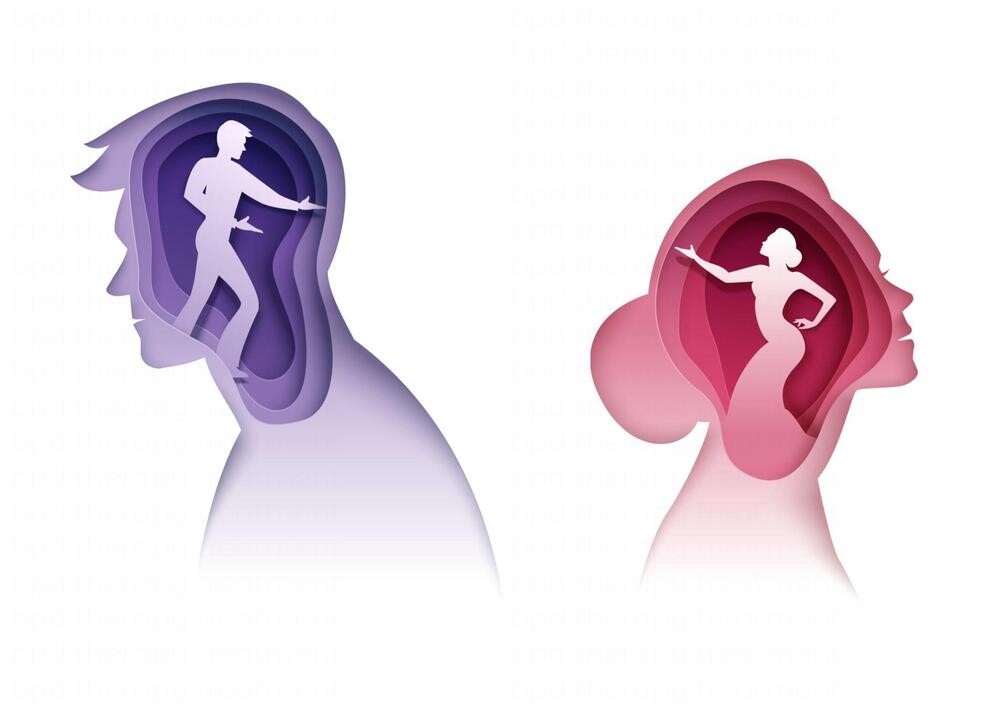Finding Your Path: The Best Therapies for Eating Disorder Recovery
Navigating the world of eating disorder treatment can feel overwhelming, a dense forest of acronyms and approaches. You are not alone in this search for clarity. The journey to recovery is deeply personal, and understanding the therapeutic options available is a powerful, courageous first step toward healing and reclaiming your life. It’s about finding the path that resonates with you, your experiences, and your unique needs.
This article is designed to be your guide. We will explore the most effective, evidence-based therapies for eating disorders, breaking down complex concepts into understandable insights. Our goal is to empower you with knowledge, so you can make informed decisions and find the support that will truly make a difference. Remember, recovery is not just possible, it is expected.

What exactly is an eating disorder?
An eating disorder is a serious and complex mental health condition characterised by severe disturbances in eating behaviours and related thoughts and emotions. These are not lifestyle choices or phases, but genuine, life-threatening illnesses that affect people of all ages, genders, ethnicities, and body types.
They often involve an intense preoccupation with food, body weight, and shape, leading to dangerous eating patterns. These patterns can include severe restriction of food, binge eating, or compensatory behaviours like purging. The psychological toll is immense, frequently co-occurring with conditions like depression, anxiety, and obsessive-compulsive disorder.

Why is therapy the cornerstone of treatment?
Therapy is the cornerstone of eating disorder treatment because these conditions are fundamentally psychological illnesses with physical consequences, not the other way around. While restoring nutritional health is a critical first step, it doesn’t address the underlying thoughts, emotions, and behavioural patterns that drive the disorder.
Therapy provides a safe and structured space to untangle the complex web of factors contributing to the eating disorder. It helps individuals identify triggers, challenge distorted beliefs about food and body image, and develop healthier coping mechanisms. Without addressing these psychological roots, the risk of relapse remains incredibly high, as the behaviours are merely symptoms of a deeper internal struggle.

What are the leading evidence-based therapies?
The most effective treatments are evidence-based, meaning they have been rigorously studied and proven to work. Several therapeutic modalities stand out for their success in treating eating disorders, each with a unique focus and approach.
The "best" therapy is not a one-size-fits-all solution but depends on the specific type of eating disorder, the individual’s age, and their personal circumstances. The leading approaches include enhanced forms of Cognitive Behavioural Therapy, Family-Based Treatment, Dialectical Behaviour Therapy, and others that we will explore in detail.

Is Cognitive Behavioural Therapy (CBT) effective for eating disorders?
Yes, a specialised form of Cognitive Behavioural Therapy, known as Enhanced Cognitive Behavioural Therapy (CBT-E), is considered a leading, front-line treatment for adults with eating disorders. It is a highly structured and goal-oriented approach designed specifically to address the core mechanisms that maintain eating disorder psychopathology.
CBT-E operates on the principle that to recover, an individual must change their disordered eating behaviours and challenge the over-evaluation of shape and weight that fuels the condition. The therapy is typically divided into distinct stages, guiding the person from understanding their illness to building a life free from its grip.
The process begins with a focus on psychoeducation and establishing a pattern of regular eating. This initial phase helps to normalise eating habits and reverse the effects of starvation or chaotic eating, which themselves can perpetuate distorted thinking. The therapist works collaboratively with the client, acting as a coach and guide.
Subsequent stages involve identifying and challenging the specific thoughts and beliefs that maintain the eating disorder. This could include addressing perfectionism, low self-esteem, or interpersonal difficulties. The final phase focuses on relapse prevention, equipping the individual with the skills and strategies needed to navigate future challenges and maintain their recovery long-term.

What is Family-Based Treatment (FBT)?
Family-Based Treatment (FBT), also known as the Maudsley Method, is the leading evidence-based treatment for adolescents and children with anorexia nervosa and is also adapted for other eating disorders. It is an intensive outpatient therapy that uniquely empowers parents to take a central and active role in their child’s recovery.
The core philosophy of FBT is that parents are not the cause of the eating disorder, but they are the best resource for helping their child recover. The therapy temporarily puts parents in charge of re-feeding their child to restore weight and normalise eating patterns, a process that is critical for physical and psychological recovery.
FBT is typically conducted in three phases. The first phase focuses on weight restoration. The therapist supports the parents in the challenging task of ensuring their child eats enough to get well, effectively separating the illness from the child and uniting the family against the eating disorder.
Once weight is restored and eating is more stable, the second phase begins, gradually returning control over eating back to the adolescent in an age-appropriate manner. The final phase addresses broader adolescent developmental issues and helps the family establish healthy patterns of communication and interaction, ensuring the recovery is sustainable.

How does Dialectical Behaviour Therapy (DBT) help?
Dialectical Behaviour Therapy (DBT) is a highly effective treatment, particularly for individuals with bulimia nervosa and binge eating disorder, especially when there are difficulties with emotional regulation. It was originally developed to treat borderline personality disorder but has been successfully adapted for eating disorders characterised by impulsive behaviours and intense emotions.
DBT helps by teaching individuals specific skills to manage painful emotions and reduce destructive behaviours. The therapy is based on the idea that some people are more prone to reacting in an intense and out-of-the-ordinary manner toward certain emotional situations, and the eating disorder behaviours have become a way of coping with these overwhelming feelings.
The treatment focuses on four key skill modules. Mindfulness helps individuals learn to be present and non-judgmental about their thoughts and feelings. Distress Tolerance provides strategies to get through crisis situations without resorting to harmful behaviours.
Emotion Regulation teaches people how to understand and manage their emotions in a healthier way. Finally, Interpersonal Effectiveness helps individuals communicate their needs and build better relationships. By building competence in these areas, DBT offers concrete, practical alternatives to using eating disorder behaviours as a coping mechanism.

Could Interpersonal Psychotherapy (IPT) be the right choice?
Yes, Interpersonal Psychotherapy (IPT) can be an excellent choice, especially for individuals with bulimia nervosa and binge eating disorder whose symptoms are closely linked to their relationships and social context. Unlike therapies that focus on diet and weight, IPT operates on the theory that eating disorder symptoms often develop and are maintained within a social and interpersonal context.
IPT helps individuals identify and resolve interpersonal problems that may be contributing to their eating disorder. The therapy does not directly address eating behaviours. Instead, it focuses on improving relationship skills and social functioning, with the understanding that as a person’s interpersonal life improves, their eating disorder symptoms will also resolve.
The treatment typically focuses on one or two key problem areas. These can include unresolved grief, difficult life transitions like moving or starting a new job, interpersonal role disputes with significant others, or social deficits that make it hard to form and maintain relationships.
By working through these interpersonal issues in a structured way, clients gain insight into how their relationships affect their emotions and behaviours, including their eating. They learn more effective ways to communicate and solve problems, which in turn reduces the distress that often triggers bingeing and purging.

What about Acceptance and Commitment Therapy (ACT)?
Acceptance and Commitment Therapy (ACT) is a newer, yet promising, approach for eating disorders that helps individuals build a rich and meaningful life while accepting the presence of difficult thoughts and feelings. It differs from other therapies by not attempting to eliminate or change distressing thoughts, but rather to change one’s relationship to them.
ACT is based on the idea that suffering comes from trying to control or avoid unwanted internal experiences like negative thoughts, emotions, and physical sensations. It teaches mindfulness skills to help individuals detach from these experiences and see them for what they are, just thoughts and feelings, not objective truths.
The therapy encourages clients to clarify their personal values, what truly matters to them in life, such as connection, creativity, or compassion. The goal is then to commit to taking actions that are aligned with these values, even when difficult thoughts and feelings are present.
For someone with an eating disorder, this means learning to accept urges to restrict or binge without acting on them. It involves building a life so full and meaningful that the eating disorder loses its power and purpose. ACT helps people move from a life dominated by a struggle with food and body to one guided by their deepest values.

Is psychodynamic therapy used for eating disorders?
Yes, psychodynamic therapy is used for eating disorders, often for individuals who have not responded to more structured, short-term therapies or who wish to explore the deeper, unconscious roots of their condition. This approach is less focused on immediate symptom reduction and more on understanding the underlying conflicts and developmental issues that contribute to the eating disorder.
Psychodynamic therapy posits that eating disorder symptoms are symbolic expressions of unresolved internal conflicts, often stemming from early life experiences and relationships. The goal is to bring these unconscious thoughts and feelings into conscious awareness, allowing the individual to understand their origins and develop healthier ways of coping.
The therapeutic relationship itself is a key component of the treatment. Through the interaction with the therapist, the client can explore and rework past relational patterns that are being re-enacted in the present. This can lead to profound and lasting changes in self-perception and interpersonal functioning.
This form of therapy is typically longer-term and less structured than CBT or DBT. It can be particularly helpful for individuals with long-standing eating disorders, co-occurring personality disorders, or a history of trauma, providing a space for deep exploration and personality integration.

How do you choose the right therapy for you?
Choosing the right therapy is a collaborative process that should involve you, your family where appropriate, and a qualified mental health professional. The best choice depends on a careful assessment of your specific diagnosis, age, personal history, and treatment goals.
There is no single "best" therapy, only the therapy that is best for you at this point in your journey. It’s important to research the options, ask questions, and be open to a professional’s recommendation. The most critical factor is finding an approach and a therapist that you feel comfortable and engaged with.

Does the type of eating disorder matter?
Yes, the specific type of eating disorder is a primary factor in determining the most appropriate therapeutic approach. The evidence base for treatment varies significantly between anorexia nervosa, bulimia nervosa, and binge eating disorder.
For example, for adolescents with anorexia nervosa, Family-Based Treatment (FBT) has the strongest evidence of effectiveness. For adults with bulimia nervosa and binge eating disorder, Enhanced Cognitive Behavioural Therapy (CBT-E) is often considered the first-line treatment. Dialectical Behaviour Therapy (DBT) may be recommended for those who struggle significantly with emotional dysregulation. A thorough diagnostic assessment is the essential first step to guide this decision.

Should your age influence the choice of therapy?
Absolutely, age is a critical factor in selecting the most effective therapy. Treatment approaches for children and adolescents are fundamentally different from those for adults, primarily due to the role of the family and the developmental stage of the individual.
As mentioned, Family-Based Treatment (FBT) is the gold standard for younger individuals, as it leverages the family unit as the primary agent of change. For adults, the focus shifts to individual therapies like CBT-E, DBT, or IPT, which empower the person to take responsibility for their own recovery. The choice of therapy must be age-appropriate to be effective.

What role does a therapist’s specialisation play?
A therapist’s specialisation is not just important, it is crucial. Eating disorders are complex and dangerous illnesses that require specialised knowledge and training. A general therapist, however skilled, may not have the specific expertise needed to navigate the intricacies of eating disorder treatment.
A specialist will be well-versed in the evidence-based protocols like CBT-E or FBT. They will understand the medical risks associated with eating disorders, the importance of a multidisciplinary team, and the specific cognitive distortions and behavioural patterns that maintain the illness. Choosing a therapist who specialises in eating disorders significantly increases the likelihood of a successful outcome.

How important is the therapeutic relationship?
The therapeutic relationship, or therapeutic alliance, is profoundly important, regardless of the specific type of therapy being used. Research consistently shows that a strong, positive connection between the client and therapist is one of the most significant predictors of success in treatment.
You need to feel safe, respected, understood, and genuinely cared for by your therapist. This relationship provides the foundation of trust upon which the difficult work of recovery can be built. If you don’t feel a good connection with a therapist after a few sessions, it is perfectly acceptable and often wise to seek out someone else who is a better fit.

What other support is needed alongside therapy?
Therapy is the core of treatment, but it is rarely sufficient on its own. A comprehensive, multidisciplinary approach that addresses the physical, nutritional, and psychological aspects of the illness offers the best chance for a full and lasting recovery.
This team-based approach ensures that all facets of the eating disorder are being managed concurrently. The therapist, medical doctor, and dietitian should ideally communicate and collaborate to provide cohesive and coordinated care, wrapping a network of support around the individual.

Why is medical monitoring essential?
Medical monitoring is absolutely essential because eating disorders can have severe and life-threatening physical consequences. Behaviours like starvation, purging, and bingeing can wreak havoc on the body, affecting the heart, bones, teeth, and other vital organs.
A medical doctor, preferably one with experience in eating disorders, should regularly monitor vital signs, blood work, and overall physical health. This ensures the individual is medically stable enough to participate in outpatient therapy and allows for early detection of any dangerous complications. Medical oversight is a non-negotiable component of safe and responsible treatment.

What is the role of nutritional counselling?
Nutritional counselling, provided by a registered dietitian who specialises in eating disorders, plays a vital role in recovery. It is very different from standard weight-loss dieting, its purpose is to heal the individual’s relationship with food and their body.
The dietitian works with the client to challenge food rules, reintroduce feared foods, and establish a pattern of regular, adequate, and flexible eating. They provide education on the body’s nutritional needs and help dispel the myths and misinformation that fuel the eating disorder. This practical support is crucial for translating the work done in therapy into real-world changes.

Can support groups make a difference?
Yes, support groups can make a significant positive difference in the recovery process. They provide a unique space where individuals can connect with others who truly understand what they are going through, reducing feelings of isolation, shame, and secrecy.
Peer support groups offer a sense of community and hope. Hearing from others who are further along in their recovery can be incredibly inspiring, while sharing one’s own struggles can be validating and cathartic. While not a substitute for professional therapy, support groups can be a powerful and valuable addition to a comprehensive treatment plan.
Frequently Asked Questions

How long does therapy for an eating disorder take?
The duration of therapy for an eating disorder varies greatly from person to person. For structured therapies like CBT-E, a typical course might be 20 to 40 sessions over several months, while longer-term psychodynamic therapy can last for a year or more. The length of treatment depends on the severity of the illness, the presence of co-occurring conditions, and the individual’s pace of progress. Recovery is a marathon, not a sprint.

Can you fully recover from an eating disorder?
Yes, full and lasting recovery from an eating disorder is absolutely possible. Recovery means reaching a place where thoughts about food, weight, and body no longer dominate your life, allowing you to eat flexibly and intuitively and to engage fully in relationships, work, and passions. While it requires hard work and commitment, countless individuals go on to live lives completely free from their eating disorder.

What is the first step to getting help?
The first and most courageous step to getting help is telling someone you trust. This could be a family member, a close friend, your GP, or a school counsellor. Acknowledging the struggle and asking for support opens the door to treatment. Your GP is an excellent starting point, as they can conduct an initial health assessment and provide a referral to a specialised mental health professional or eating disorder service.
Your journey towards healing is unique, and you do not have to walk it alone. At Counselling-uk, we provide a safe, confidential, and professional place to explore the challenges you face and get advice on the right path forward. We offer support for all of life’s challenges, understanding that an eating disorder is just one part of your story. If you are ready to find the right support, our compassionate professionals are here to listen and help you take that first, crucial step. Reach out today. Your path to recovery starts here.




